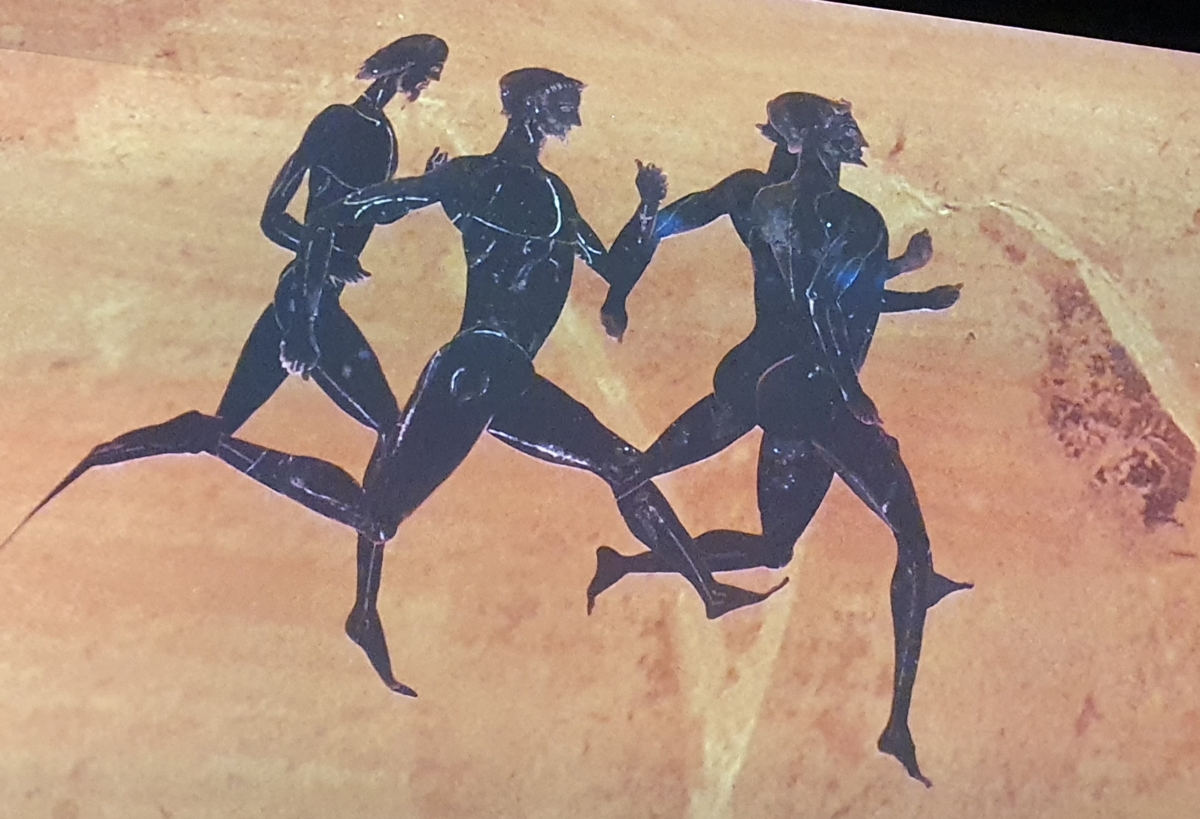The antique games
The antique games were arranged every fourth year from 776 BC until 393 AC in Olympia in Greece.
Only free, Greek men were allowed to participate. Women were only admitted as audience. The winners became heroes and rolemodels for the people.
The games had a cultic and ceremonial frame, and were made in honor to the god Zevs. During the games a wholy peace ruled between the otherwise martial city states.
The decline
The decline of the antiquity's Olympic Games happened gradually. The power of the world moved to Rome and the Olymic ideals were of lesser importance. In 276 AC the destruction of buildings in Olympia began.
The Olympic ideals could not be united with the Christian values. The celebration in honor of the Greek was looked upon as hedonic and the Greeks' body ideals were despised.
In 393 BC Emperor Theodosius banned the Olympic Games. Later plunderings, earth quakes and floods followed. Olympia was buried and was not rediscovered until the end of the 1700s.
The excavation of Olympia in the 1800s inspired Pierre de Coubertin to bring new life to the Olympic Games.
